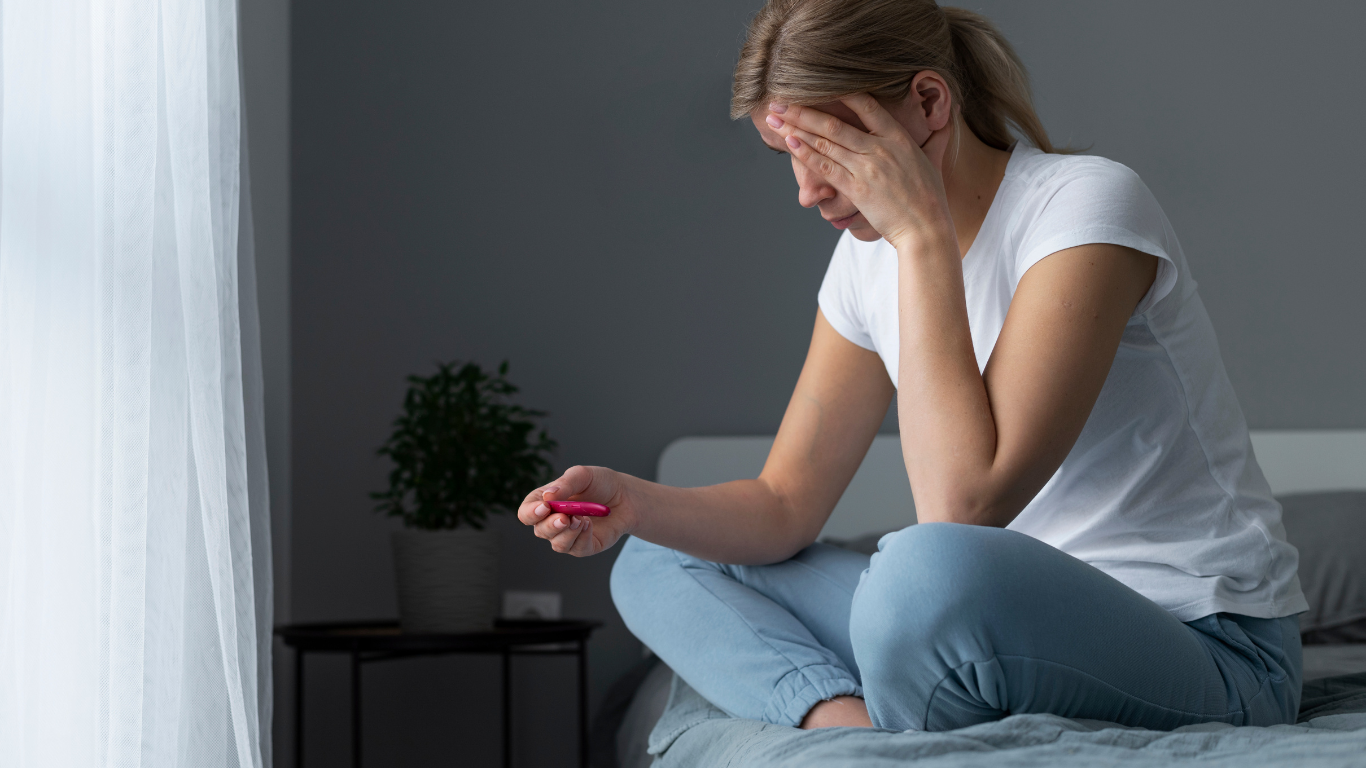Masturbation is one of those topics that, despite being a natural part of life, often comes with its fair share of confusion, shame, and myths. One common question people have is whether masturbation causes anxiety. Some might feel anxious before or after engaging in it, but is there really a direct connection between the two?
What is Masturbation?
Masturbation is the act of self-stimulation of the genitals, typically with the aim of achieving sexual pleasure or orgasm. It’s a common practice and is considered a normal part of sexual health. However, despite its natural role, there are many myths and taboos surrounding masturbation that can contribute to feelings of guilt, shame, and yes, even anxiety.
Some common myths include the idea that masturbation is harmful, sinful, or causes health problems like hair loss or infertility. While these misconceptions are widely debunked by medical professionals, they can still have a lasting psychological impact on individuals.
What is Anxiety?
Anxiety is a feeling of unease, worry, or fear that can range from mild to severe. Everyone experiences anxiety from time to time, but for some, it can become overwhelming and persistent. Anxiety disorders can manifest in different ways, including generalized anxiety disorder (GAD), panic disorder, or social anxiety. Symptoms of anxiety include:
- Excessive worry
- Restlessness or feeling on edge
- Fatigue
- Difficulty concentrating
- Muscle tension
- Sleep disturbances
The Psychological Impact of Masturbation
Masturbation itself is not inherently harmful, but for some people, it can trigger emotional responses. This is often due to personal beliefs, societal norms, or religious teachings that view masturbation in a negative light. For instance, if someone grows up being told that masturbation is wrong or shameful, they might feel guilty after doing it, even though it’s a natural and normal behavior.
Feelings of guilt and shame, particularly after masturbation, can lead to anxiety, especially if they are persistent or intense. This type of anxiety is not caused by the physical act of masturbation itself, but rather by the emotional and psychological baggage that a person associates with it.
Does Masturbation Directly Cause Anxiety?
The act of masturbation does not directly cause anxiety for most people. There is no scientific evidence that links masturbation to the development of anxiety disorders. However, anxiety can arise from certain emotional and social factors related to the act, such as:
- Guilt over societal or religious beliefs
- Fear of being judged if others find out
- Concerns about overdoing it or developing unhealthy habits
In cases where anxiety does occur after masturbation, it’s usually tied to these emotional responses rather than the act itself. For example, someone may feel guilty after masturbating because they’ve been taught it’s wrong, leading to feelings of anxiety or shame.
Masturbation, Hormones, and Mental Health
Masturbation affects hormones in the brain, particularly dopamine and serotonin, which are responsible for feelings of pleasure and well-being. After an orgasm, dopamine levels drop and serotonin levels rise, which typically leads to relaxation and contentment. For some, this hormonal shift can result in what’s commonly referred to as “post-nut clarity,” a state where emotions and thoughts seem clearer after sexual release.
However, this clarity can sometimes be accompanied by feelings of regret or anxiety, especially if the person feels conflicted about their sexual behavior. Again, this anxiety is usually a result of emotional or cultural factors, not a direct consequence of the hormone changes themselves.
Religious and Cultural Factors Contributing to Anxiety
Religious or cultural views on masturbation can significantly influence whether someone feels anxious about it. Many religious teachings view masturbation as sinful or morally wrong, which can lead to internal conflicts for individuals who practice it. This guilt can create a vicious cycle: the more someone masturbates, the more anxious they feel due to their beliefs, leading to more guilt and anxiety.
In many cases, simply breaking free from these rigid views and understanding that masturbation is a normal part of human sexuality can alleviate much of the anxiety associated with it.
Masturbation and Post-Nut Clarity
Post-nut clarity is the term used to describe the moment after orgasm when a person may experience a sharp change in their mental state. While this shift often brings relaxation, it can also lead to feelings of guilt or embarrassment, particularly if the person feels their actions were impulsive or inappropriate. This can sometimes lead to anxiety as the person reflects on what they just did.
However, it’s important to note that post-nut clarity is not universally negative. Many people feel more clear-headed, relaxed, and less anxious after masturbation. It’s the context and personal beliefs surrounding the act that determine whether this clarity results in anxiety.
When Masturbation Becomes Problematic
While masturbation is generally healthy, it can become problematic when it’s done compulsively or interferes with daily life. Compulsive masturbation can sometimes serve as a coping mechanism for anxiety, stress, or boredom. When it becomes excessive, it may lead to feelings of shame or frustration, especially if it impacts relationships, work, or personal responsibilities.
In such cases, the act of masturbation can contribute to anxiety, especially if the person feels out of control. Recognizing the signs of compulsive behavior and addressing the underlying causes of anxiety can help break this cycle.
Can Anxiety Lead to More Frequent Masturbation?
For some people, masturbation can become a way to cope with stress or anxiety. It may provide temporary relief by releasing tension and boosting feel-good hormones. However, if someone starts relying on masturbation as their primary way to manage anxiety, it can become a problem. This reliance can lead to a cycle where the person feels anxious, masturbates to relieve the anxiety, and then feels anxious again due to guilt or overuse.
The Role of Guilt in Masturbation-Related Anxiety
Guilt is one of the most common emotions tied to masturbation-related anxiety. Whether the guilt stems from religious teachings, cultural taboos, or personal beliefs, it can significantly impact how a person feels after masturbating. This guilt often leads to feelings of shame and anxiety, which can make the experience emotionally negative rather than a normal part of sexual health.
Can Masturbation Help Reduce Anxiety?
Interestingly, for many people, masturbation can actually help reduce anxiety. The release of endorphins and oxytocin during orgasm promotes relaxation and stress relief. In fact, some studies suggest that masturbation can improve sleep, lower stress levels, and enhance overall mood.
When done in moderation and without guilt, masturbation can be a healthy way to relieve stress and anxiety. The key is maintaining a positive and healthy relationship with your body and understanding that self-pleasure is natural and normal.
Healthy Masturbation Practices
To prevent masturbation from contributing to anxiety, it’s important to develop healthy practices around it. Here are
some tips:
Set boundaries: Be mindful of how often you masturbate, and make sure it doesn’t interfere with other aspects of your life.
Avoid guilt: Work on eliminating feelings of shame or guilt by recognizing that masturbation is a normal part of sexual health.
Balance: Make sure that masturbation is just one of many ways you cope with stress, and not your only strategy.
When to Seek Help for Masturbation and Anxiety
If you find that masturbation is causing significant anxiety or guilt, or if you feel like it’s becoming a compulsive behavior, it may be time to seek help. Talking to a therapist or counselor can help you explore the underlying issues and develop strategies for managing both your sexual health and anxiety.
Conclusion
Masturbation does not directly cause anxiety, but feelings of guilt, shame, or emotional conflict related to it can lead to anxious feelings. In most cases, the anxiety associated with masturbation comes from personal beliefs, cultural conditioning, or compulsive behavior rather than the act itself. By maintaining a healthy and balanced perspective on masturbation, you can avoid unnecessary anxiety and enjoy its natural stress-relieving benefits.
FAQs
1. Can guilt from masturbation cause anxiety?
Yes, guilt and shame associated with masturbation can contribute to anxiety, especially if influenced by societal or religious views.
2. Is masturbation a healthy way to relieve anxiety?
In moderation, masturbation can help relieve stress and anxiety by releasing endorphins and promoting relaxation.
3. Does excessive masturbation cause anxiety?
Compulsive masturbation, particularly when used to cope with stress, can lead to feelings of guilt or frustration, which may increase anxiety.
4. Can post-nut clarity cause anxiety?
Some people may feel anxious or guilty after experiencing post-nut clarity, especially if they have conflicting feelings about their actions.
5. Should I seek help if masturbation causes me anxiety?
If masturbation is causing significant anxiety or is becoming a compulsive behavior, it’s a good idea to seek professional help from a therapist.

